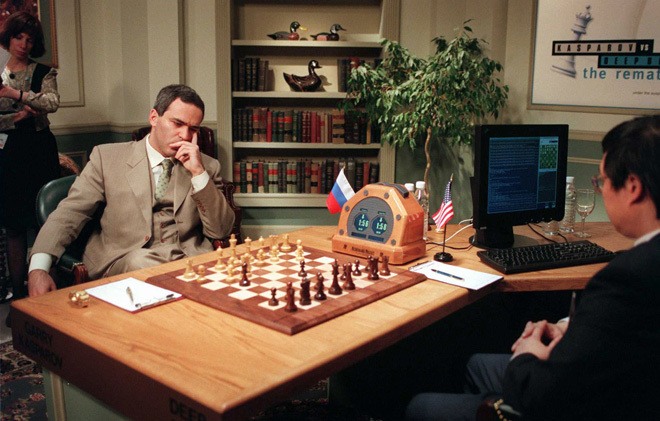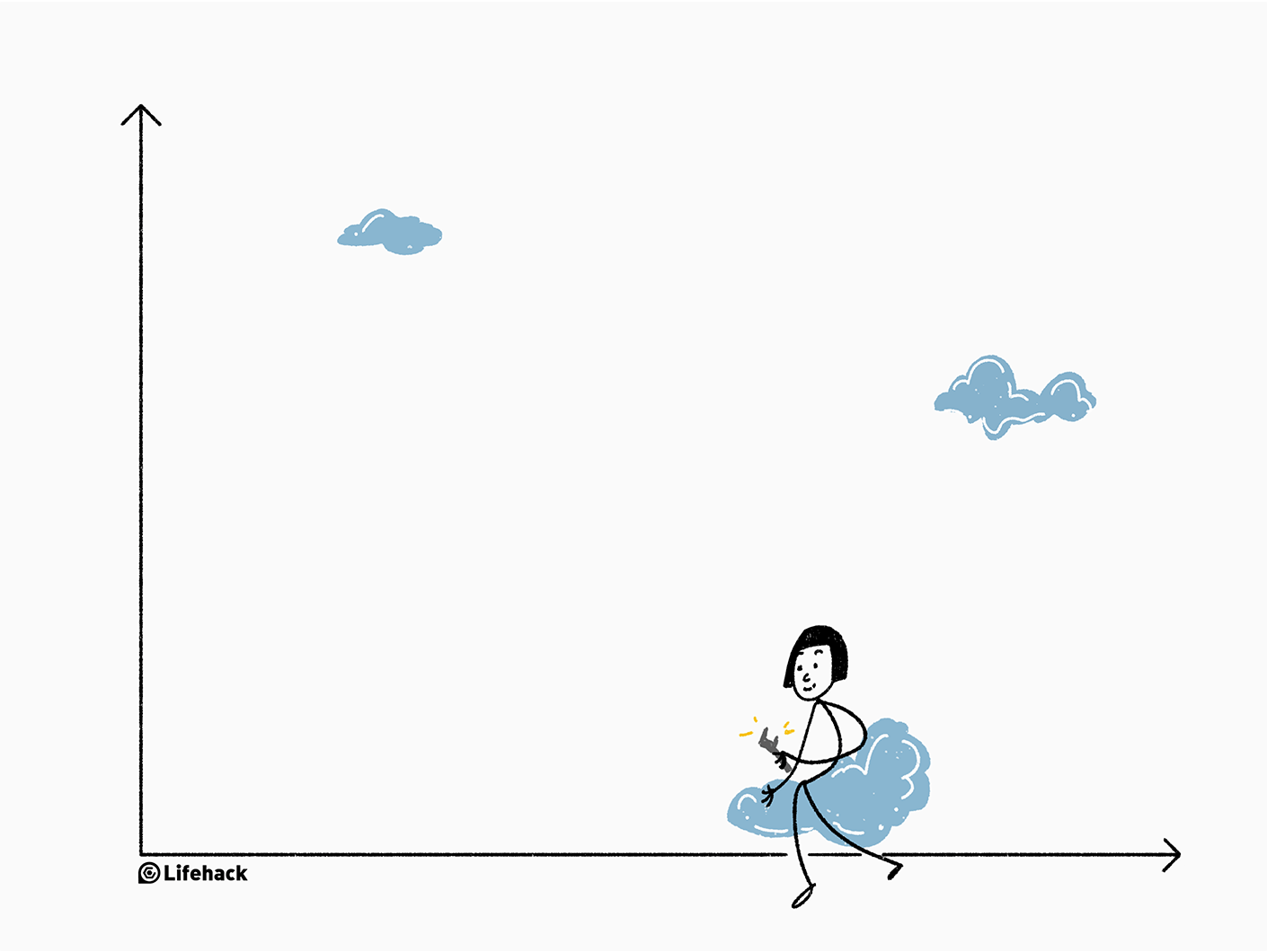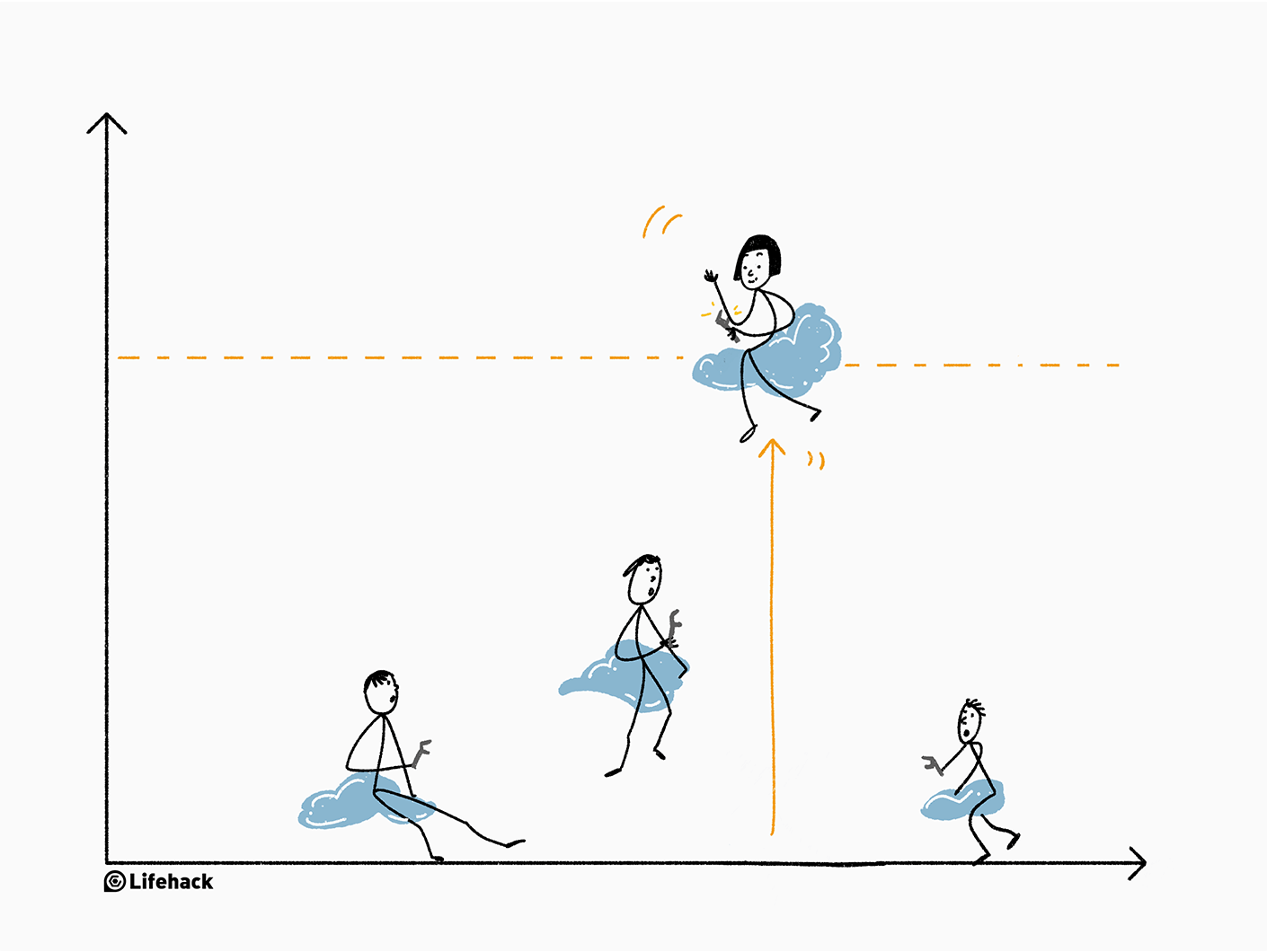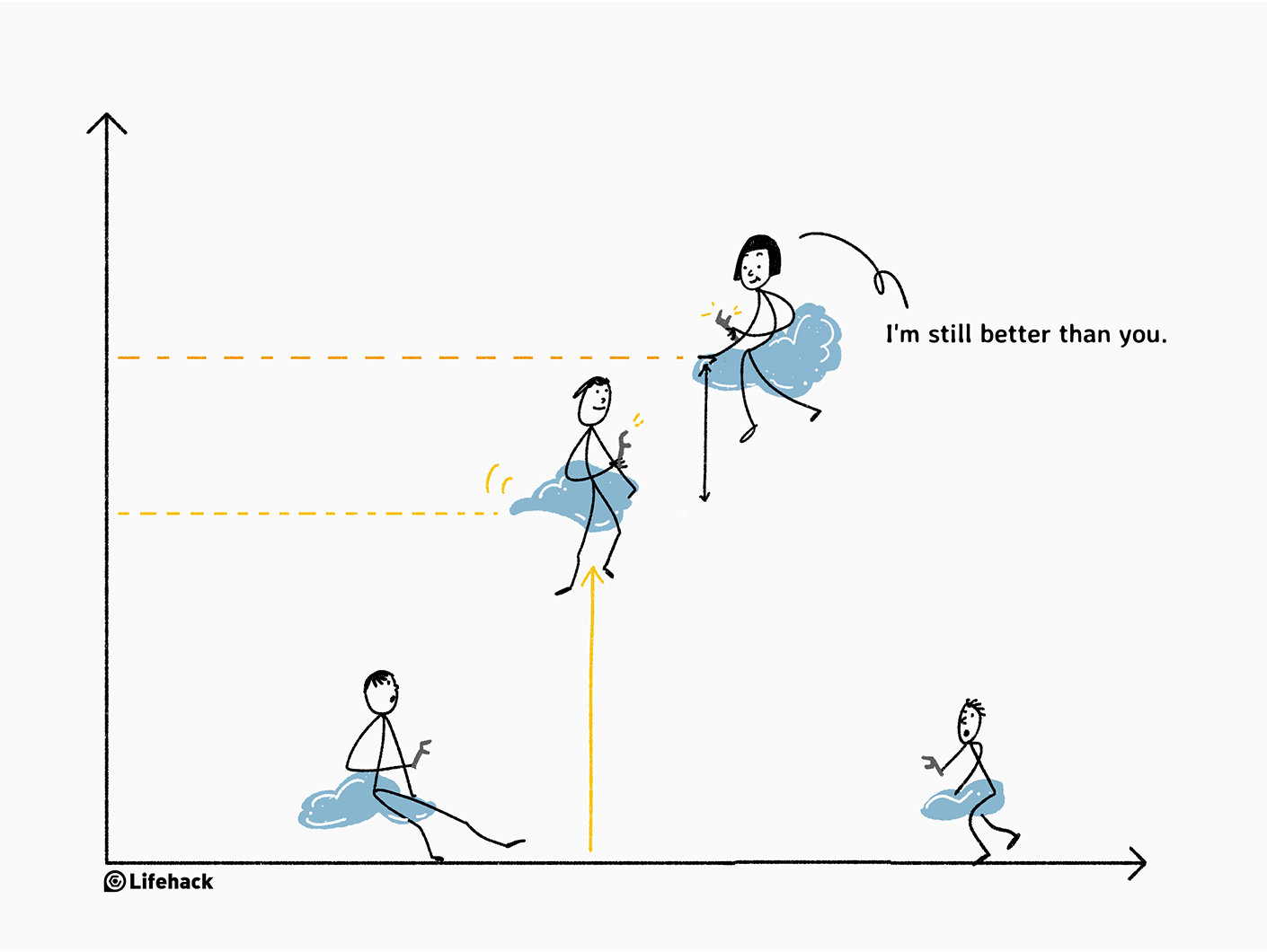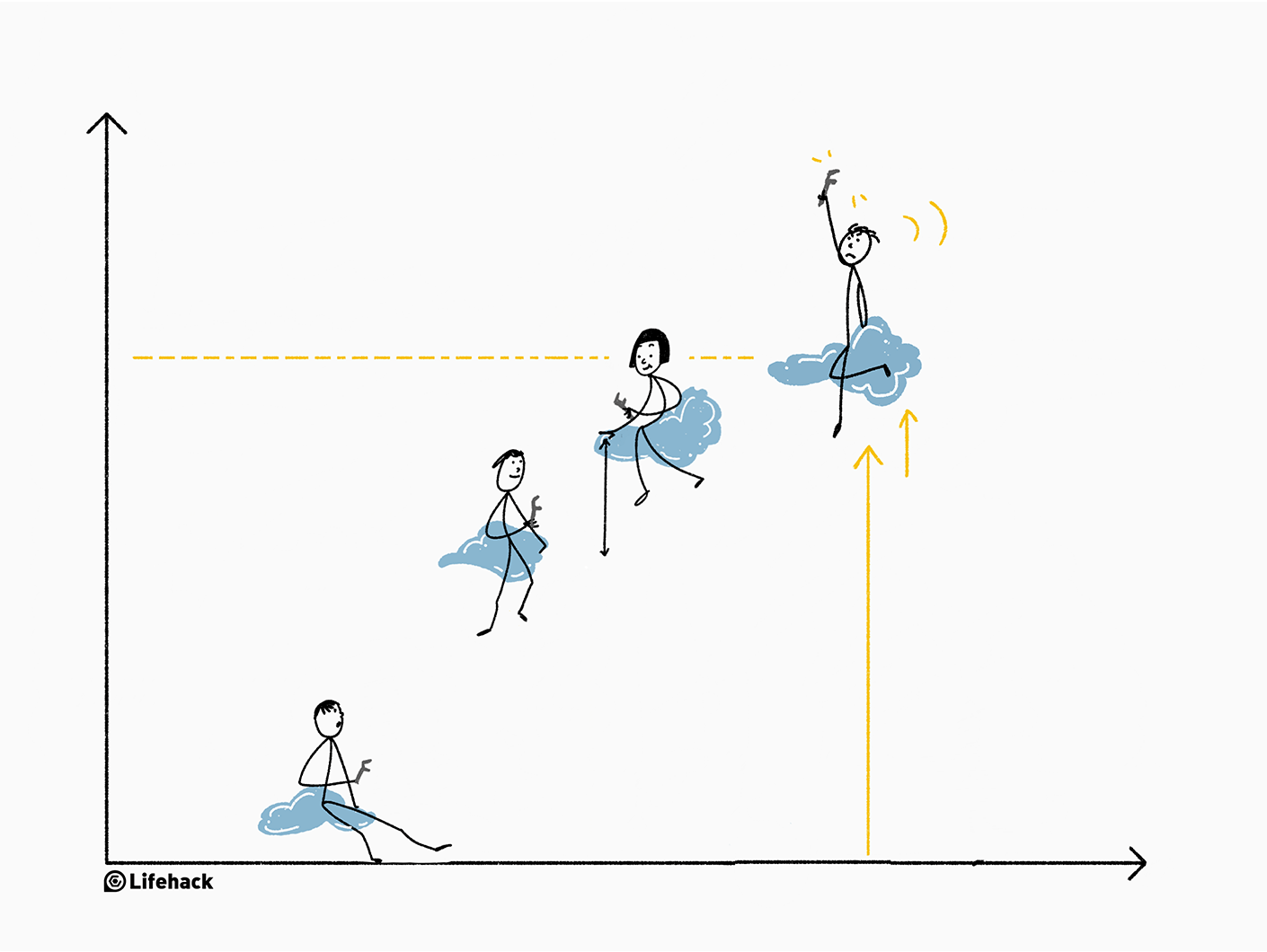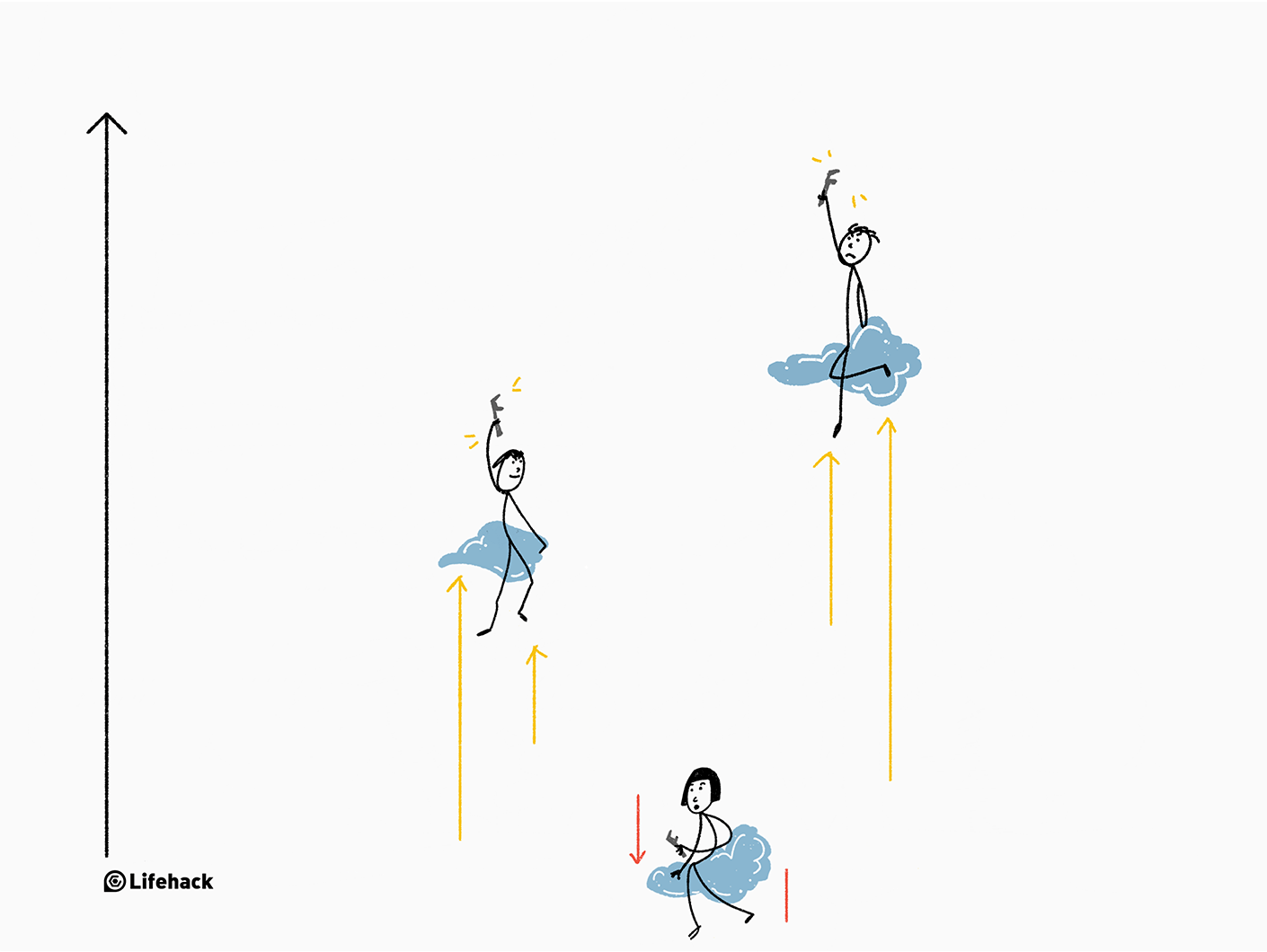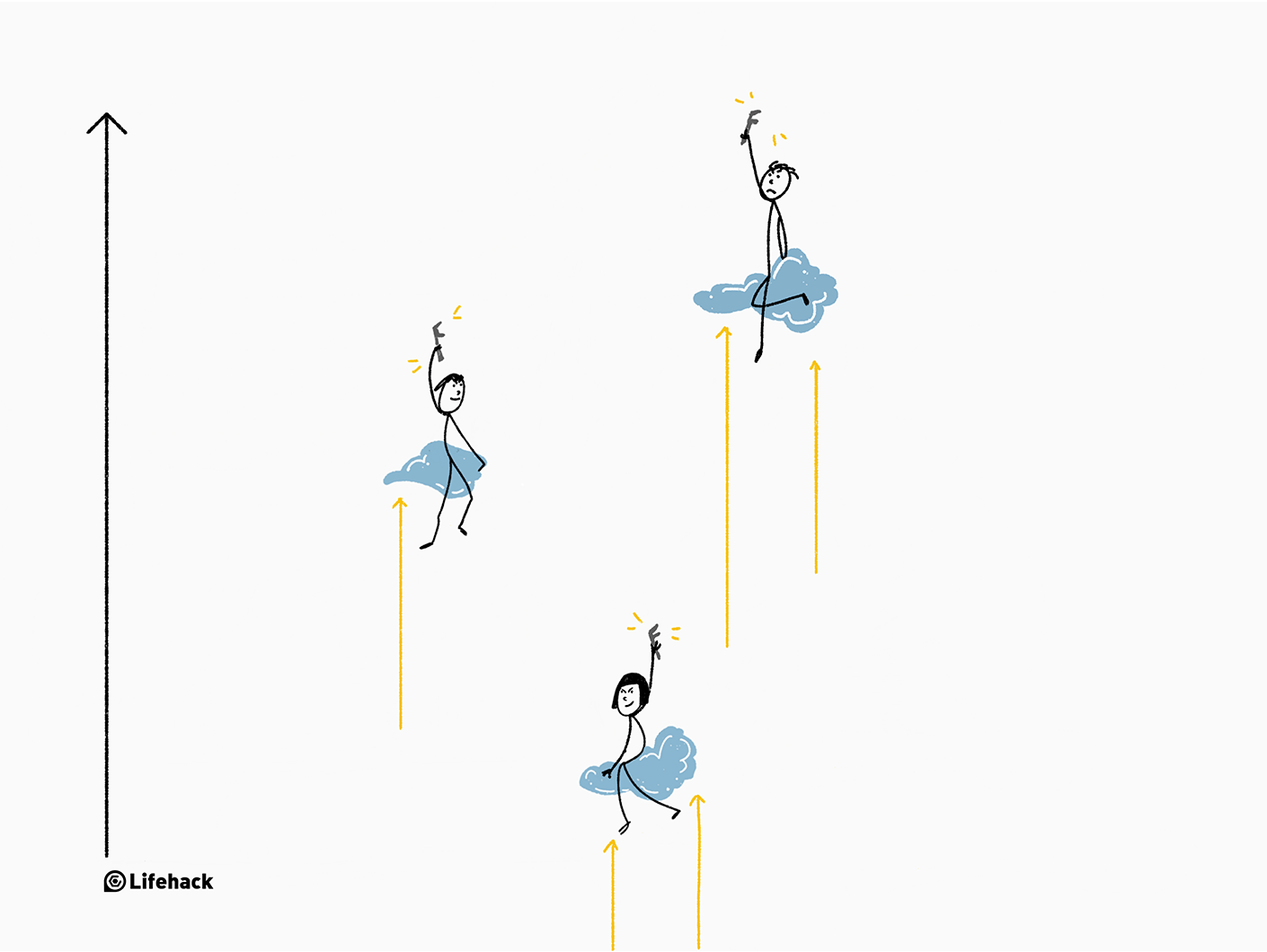However, in 1997, Kasparov lost a game of chess to a computer. A year earlier, he had played against IBM’s Deep Blue chess computer and defeated it. But the computer was to have its revenge, as just one year later, when the rematch took place, Deep Blue defeated Kasparov.
Over the next few years, humans and computers traded chess moves and blows. Fast-forward to 2017, and the picture is crystal clear: today’s best chess programs can easily beat the world’s best human chess players.[1] As the Kasparov story demonstrates, even the world’s top players – who practiced a lot – can end up losing. Now consider your friends, family and colleagues. How many of these people think they’re doing well in what they do? And how many think they are doing better than the average and have stopped looking for ways to improve themselves? The answer is, a lot.
Why Learning Can Lead to Stagnation
When people learn well – they pick up knowledge and quickly become skillful. And the smarter the people, the easier they pick up knowledge, and the easier and faster they become very good at something. These types of individuals find learning effortless, and therefore, they pick up knowledge and skills much better than the average person. Take a look at the picture below. The tool in their hand represents the skill they have learned, and the cloud is the level they are currently on – in this case ground level.
When these learners become knowers, they believe that they know what they’ve learned extremely well. This may be the case, but in reality, they’re already better than average. Because of this, they are unlikely to find anyone who can surpass them. It’s at this point that they may think to themselves, “I’m good enough” and “there’s no need for me learn anything more.”
As I’ll show in the next few paragraphs, people’s egos can stop them from learning and improving themselves. For example, let’s take a look at an expert pianist. They can perform proficiently because of their hard work and practice that they’ve put in over the course of many years. To help them, they may have had a tutor who developed their skills and brought out their talent. The consistent tutoring and practicing led them to become an accomplished pianist – one who regularly performs paid concerts in front of decent-sized audiences. However, their success has led them to believe that they don’t need to make any further changes or improvements to their musical skills.
When experts stop learning – they start to fall behind. This is because others will keep improving, and eventually get ahead of them. The world is constantly changing, so sticking to the same way to practice (and failing to improve) will lead to people dropping the ball. A recent study predicted that one in five U.K. employees are under threat of losing their jobs to automation. A person who’s comfortable in their job today, may find themselves replaced by a computer or robot tomorrow. If this prediction comes true, millions of people will soon find themselves out of work.[2] This is a real life example of how people can fall behind when they stop learning and improving themselves. Clearly, any experts who stop learning and improving, will be replaced by those who keep learning – whether these are humans or machines.
When You Think You’ve Learned Enough, You Fall Behind
The cloud depicted in the visuals isn’t concrete, and it’s prone to fall and disappear any time when you stop paying attention to your own learning and development. Everyone, no matter how good they believe themselves to be at something, should never stop learning. Reaching an ‘acceptable’ performance only means that you’re doing okay. It doesn’t mean that you’re doing it to the best of your ability or potential. As I stated earlier (but well worth repeating again)… When you stop learning, you’re falling behind.
Push Yourself to Reach New Heights
To keep ahead of your competitors, you need to keep learning and practicing. However, this doesn’t necessarily mean doing things in the same way. You may need to step outside of your comfort zone in order to improve.
Do what you can’t
When you think you’re doing something well enough, find what you can’t do – and then do it! Here are four key things to remember about pushing your boundaries:
Set yourself specific goals as you practice
People who achieve great things set themselves definite goals. And I highly recommend that you do the same. One great way to do this is to follow the SMART and Stretch goal methods, which will help you set a big goal, while at the same time giving you baby steps on how to reach it. When SMART and Stretch goals are combined, your goal setting will have genuine purpose and power. You’ll be motivated by the giant goal, while having confidence in the small, incremental steps that will lead you there. Find out more about goals setting in my other article: How to Get Bigger Things Done in the Coming Year
Along the way, you need to get feedback to help you improve
It goes without saying that to make progress, you’ll need feedback to identify exactly where and how you are falling short. This feedback can be from yourself or from outside observers (e.g., your audience, your mentor, your peers). Do you know why computers can beat humans at chess after those times they’ve lost against them? The answer is, that people who program the computers have learned through all the steps humans have performed. They also gathered valuable feedback through their computers losing against some competitors. The programmers pick up the clues and change the way the computers perform in their next matches.
Learning Should Never Come to an End
When we’re young we naturally crave learning. We constantly seek out new knowledge, skills and experiences. However, as we mature, there’s a tendency for us to stop learning new things. If this happens, you can be sure that stagnation is just around the corner. And as nature shows, nothing (even stagnation) stays the same for long. Things are either building up – or breaking down. To avoid the latter, you must maintain a positive outlook that embraces big goals and constant learning. By doing these things, you’ll stay fresh, lively and ahead of the pack of hyenas snapping at your heels!
